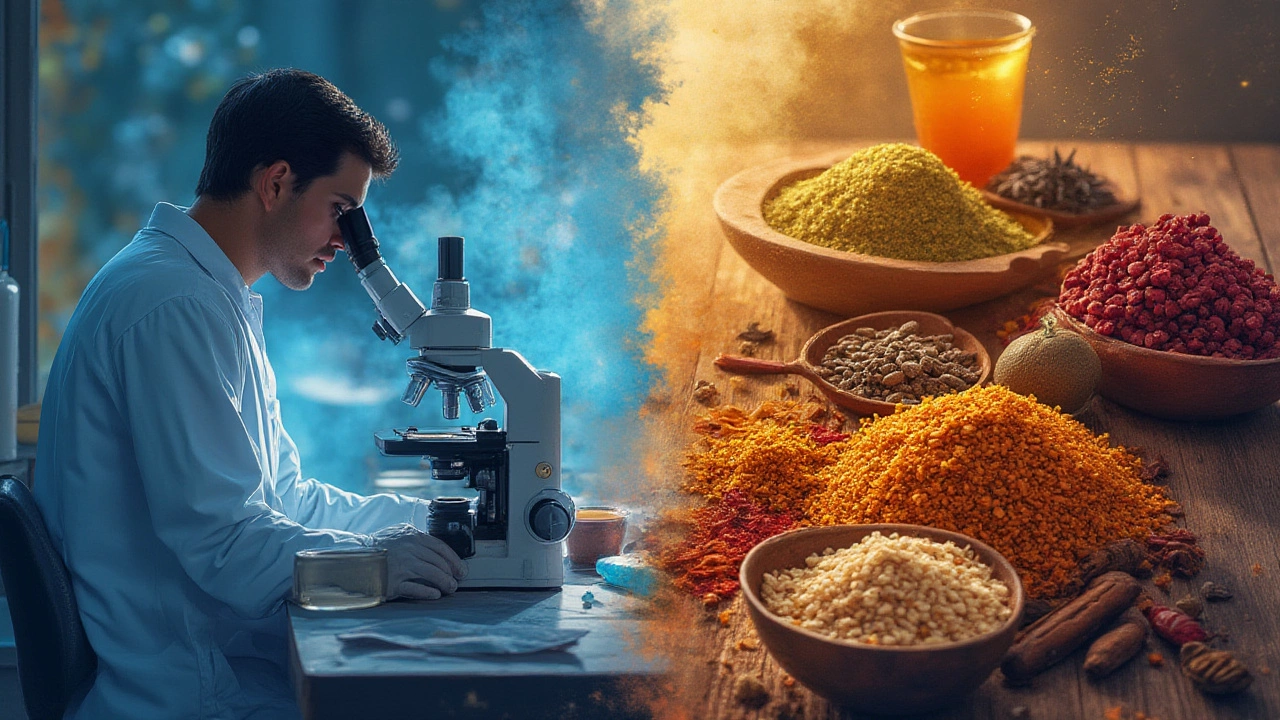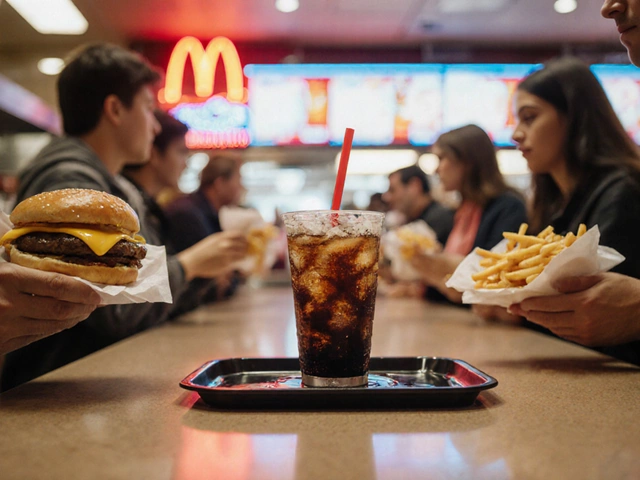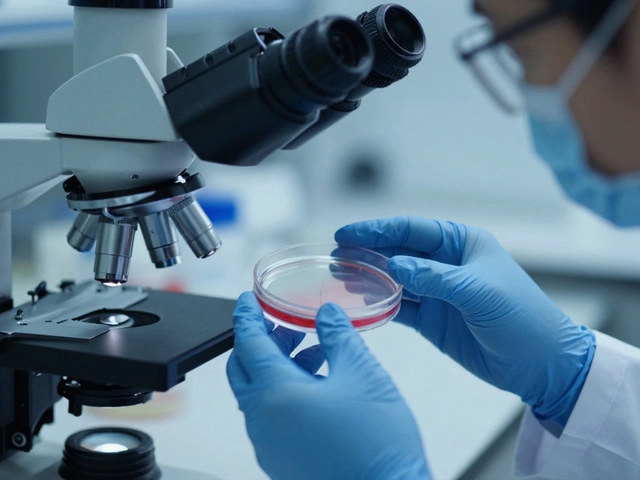If someone told you millions of abnormal cells are dividing quietly in your body every day, you might gasp—yet it's true. Still, your body is built for battle. Most of these rogue cells are snuffed out by a remarkable immune system before trouble starts. But sometimes, a few slip through. Here’s where things get interesting: certain habits and foods actually make your body better at hunting down and destroying cancer cells on its own. Let’s unpack what the science actually says, and the practical steps you can take today.
Understanding How the Body Fights Cancer
Your immune system is like a well-trained security team. It scans for cells that look or act suspicious—like those with damaged DNA or strange proteins—and it takes them out before they can form a dangerous tumor. A big player here is the natural killer (NK) cell. Think of them as the bouncers, throwing out troublemakers before they become a threat.
But what tips the odds in your favor? Researchers point out that when your body is inflamed—because of stress, processed foods, excess fat, or even bad sleep—your immune system gets distracted. Chronic inflammation gives cancer cells more chances to hide and grow. A study from 2022 checked inflammation markers in 2,500 healthy adults and found that higher inflammation nearly doubled the risk for certain cancers within just five years. In simple terms: cool off that internal fire, and you’ll make it a lot tougher for cancer cells to gain ground.
- Healthy immune cells are constantly looking for abnormal cells to eliminate.
- Chronic inflammation is a known enemy—it slows immune response and creates safe zones for cancer growth.
- Daily habits can drastically impact both inflammation and immune function.
Your body isn’t just passively waiting to see what happens; every choice you make influences this internal game.
What really makes a difference? Consistent sleep—at least 7 hours—gives immune cells time to repair and multiply. Add a brisk walk: regular exercise ramps up immune surveillance, making it harder for sneaky cells to hide. And don’t underestimate stress. When cortisol floods your system, it tells immune cells to chill out, which isn’t what you want.
| Lifestyle Choice | Impact on Immune System |
|---|---|
| Regular Exercise (30 min/day) | Boosts NK cell activity by 30% |
| Chronic Poor Sleep | Reduces tumor-fighting immune cells by up to 70% |
| Processed Foods | Increases inflammation, weakens immune response |
| Stress Management | Lowers inflammation markers and boosts immune vigilance |
These aren’t magic bullets, but over months and years, small choices stack up. Your immune system is either tuned and ready, or tired and distracted. When it comes to cancer, you want it razor-sharp.

Diet, Nutrients, and Natural Cancer Fighters
Sure, you’ve heard broccoli is ‘healthy’—but why does it pop up so often when talking about cancer? Let’s get into the nuts and bolts. Cruciferous vegetables like broccoli, Brussels sprouts, and kale contain glucosinolates. These break down into sulforaphane—a compound proven in human cell studies (even at Johns Hopkins) to slow the growth of breast and prostate cancer cells. It isn’t just lab hype: a 2021 review showed people who ate more than five servings of these veggies a week had a 19% lower risk of certain cancers compared to those who rarely touched them.
- Broccoli, Brussels sprouts, kale: rich in glucosinolates that turn into sulforaphane—directly toxic to many cancer cells
- Berries: loaded with antioxidants that mop up DNA-damaging free radicals
- Green tea: contains epigallocatechin gallate (EGCG), which in lab studies stopped cancer cells from spreading
- Turmeric: its active ingredient (curcumin) blocks signals cancer cells need to multiply—small but mighty, even in tiny daily amounts
- Garlic and onions: full of organosulfur compounds that activate cancer-fighting enzymes and reduce inflammation
If you want to naturally turn up the heat on cancer cells, your grocery cart matters. Make at least half of your plate full of colorful vegetables and fruits—those compounds literally disrupt cancer’s lifelines. Swap packaged snacks for raw nuts; almonds and walnuts, for example, are packed with ellagic acid, which directly triggers self-destruction in abnormal cells (the fancy word: apoptosis).
But diet isn’t about one miracle food. The Mediterranean diet, with its focus on olive oil, veggies, legumes, and moderate fish, keeps popping up in studies because it fights inflammation on every level. People who stick to this way of eating shave their risk of cancer death by around 13%, according to real data published in Annals of Oncology. Every meal is another nudge for your body’s defense squad.
| Food | Active Compound | Cancer-Fighting Effect |
|---|---|---|
| Broccoli | Sulforaphane | Slows tumor growth, increases cell death |
| Berries | Anthocyanins | Reduces oxidative stress, repairs DNA |
| Green Tea | EGCG | Blocks cancer spread |
| Turmeric | Curcumin | Stops cancer cell signals |
| Garlic | Allicin | Activates immune defense |
Water can be a secret weapon too. Hydration flushes toxins that could otherwise mess with your cells’ DNA. Aim for 8-10 glasses daily—think of it as rinsing away the sneaky stuff cancer cells could use as a foothold.
Watch your sugar. A 2023 analysis published in Nature Reviews shows that high-sugar diets disrupt immune function and help create the low-oxygen, acidic environments where cancer thrives. No, skipping dessert won’t cure cancer. But cutting back on added sugars strips away another crutch that rogue cells use to grow unnoticed.
If you like things spicy, you’re in luck: hot peppers contain capsaicin, another compound with real anti-cancer effects—at least in lab settings. Plus, these spicy foods force you to slow down and pay attention to your eating, which helps prevent overeating (obesity is a proven cancer risk).
There are many supplements in the spotlight. Vitamin D tops the list; low levels have repeatedly been linked to higher cancer risk, especially colon and breast. Luckily, 15-20 minutes of sun on your arms a day can keep you healthy in most regions, but if you’re mostly indoors, a quality supplement works too. No need for megadoses; the sweet spot is around 1,000–2,000 IU daily, but always worth a quick chat with your doctor.

Everyday Habits That Make or Break Cancer Defenses
The easiest advice to ignore is sometimes the best. Managing daily stress doesn’t sound like cancer prevention, but chronic stress pushes your body to produce inflammatory hormones constantly. Long-term, this slowly wears down the immune system. Mindfulness, meditation, even five-minute breathing exercises—people who stick to it have measurable drops in inflammation. That means their bodies are primed to pick off abnormal cells long before they become tumors. If you need a nudge, apps like Headspace or Calm gamify the process.
Physical activity is a true game changer. A massive 2024 meta-analysis covered 1.44 million people over decades and found that regular moderate movement (think brisk walking, cycling, gardening) slashed cancer risk for 13 different kinds—not just breast and colon, but also liver, kidney, and endometrium. Exercise floods your tissues with oxygen, making them less hospitable to cancer, and triggers your immune cells to patrol more aggressively.
- Reduce alcohol—One glass now and then is okay, but regular heavy drinking is linked to seven cancer types, especially those of the digestive system.
- Never smoke—Tobacco is still the #1 cause of preventable cancer. Even if you quit today, your risk drops year by year.
- Keep a healthy weight—Body fat, especially around your belly, is a factory for inflammatory hormones. Losing just 5% has proven measurable benefits for the immune system.
- Get routine check-ups—Finding and treating abnormal cells early is one place where modern medicine really shines. Don’t skip screenings.
Your personal environment matters too. Air pollution isn’t just unpleasant; tiny particles (PM2.5s) slip past your lungs’ defenses and can cause DNA damage, which over time boosts cancer risk. If you live in a smog-prone city, invest in a home air purifier and keep windows closed on the worst days.
Some practical hacks to keep cancer at bay:
- Turn off screens an hour before sleep—blue light messes with melatonin, a hormone that helps fight cancer.
- Eat more fiber—beans, lentils, and whole grains sweep away toxins and keep your gut lining healthy, stopping carcinogens before they get in your bloodstream.
- Experiment with intermittent fasting—a 16:8 window (eat over 8 hours, fast for 16) helps cells repair themselves and starves potential cancer cells of the constant fuel they crave.
- Spend time in nature—forest air, which is rich in phytoncides, has been shown to boost ‘killer cell’ activity. Even a half-hour walk in the park two times a week boosts your immune system for days.
Careful though, not all "natural cures" are trustworthy. The internet is filled with miracle claims—apricot kernels, baking soda, or herbal teas with wild promises. There’s little evidence for most of these, and some can be downright dangerous. If something sounds too good to be true, it usually is. Always talk with a healthcare professional about any new supplement or drastic change in your lifestyle, especially if you already have a cancer diagnosis.
The main thing? You have far more influence over your cancer risk than you probably realize. By turning down inflammation, giving your immune system what it needs, and making better choices every day, you’re not just rolling the dice—you’re resetting the odds. Nature offers incredible tools, but *how* you use them makes all the difference. Destroying cancer cells naturally isn’t about chasing magic. It’s about stacking your habits so your body gets the upper hand.








